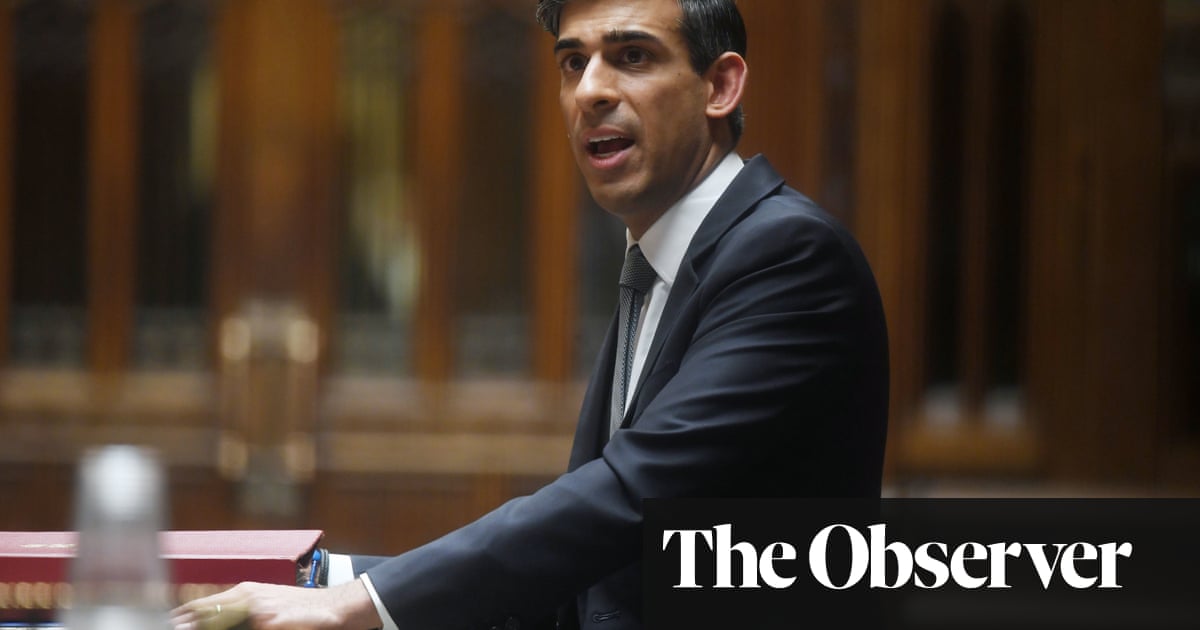
Judge a political party by the choices it makes. Rishi Sunak may plead that no chancellor could protect everyone from a cost of living crisis driven by events outside his and the country’s control. But he protests too much. There were two realities as he composed the spring statement that he presented last week. First was the warning from the Office for Budget Responsibility (OBR) that British households faced the most severe drop in living standards for 66 years. Second was the unexpected good news that, far from being in a tight fiscal spot, there was a revenue bonanza that would carry the budget deficit in four years’ time to the lowest for a generation. The chancellor had some £30bn of financial headroom he had not expected in October. Sunak had choices, but he chose not to make them.
Living standards for the poorest in our society are already desperate. Sunak could comfortably have afforded the £6bn to lift universal credit by £20 a week, restoring the valuable increase made during the pandemic. He could have indicated that he would fully index all benefits to reflect the surge in inflation that is so swelling the Treasury’s coffers. His refusal to do so, estimates the Joseph Rowntree Foundation, will pull a further 600,000 people into poverty, of whom around a quarter are children. He could have indicated that he would revisit February’s package to help households with their energy bills, given the OBR forecast of a further 40% rise in energy prices in the wake of the Ukraine war. As a result, the price cap will rise to £2,801 in October, nearly £2,000 higher than 18 months ago, equivalent to a 6p rise in the standard rate of income tax.
He did none of these, contenting himself with raising the fund available to local authorities to assist vulnerable people by a mere £500m. After taking all the measures into account, including the concessions on national insurance and fuel duty, the typical working-age household will see its income fall next year by 4%, or £1,100, according to the Resolution Foundation. But the poorest quarter of households will see their income fall 6%, taking 1.3 million into absolute poverty.
These numbers are breathtaking, but avoidable. The Trussell Trust reports that 600,000 more people used food banks in 2021, taking the grand total to more than 2.5 million. That number will surely rise at least another 600,000 in 2022 to more than 3 million. Yet Britain is one of the richest countries on Earth. What kind of society are we creating that we are prepared to live with such poverty in our midst? For the Tory party, what matters is not the condition of the people but the drive for tax cuts and the shoehorning of every policy ambition into the straitjacket of artificial constraints on debt. A moral and effective social policy is the also-ran.
It is a carelessness born of profound cynicism. There are many Britons with every reason to believe that they should not live in a society that makes so many choose between eating, clothing or staying warm. But prevailing Conservative practice indicts their poverty as a matter of choice; they should pull themselves up by their bootstraps into self-reliance.
But as we learned from the pandemic, the rich cannot insulate themselves from poor people crowded into multi-occupied decrepit housing, incubating the virus. Self-interest alone demands we all care. The doctrine of self-help ignores the reality that for the poor the struggle is just to survive. But beyond that, acknowledgement of reciprocal obligation to our fellow citizens defines our humanity. There is a collective “we” beyond the “I” demanding tax cuts. By their choices we shall know them. Last week, the Conservative party’s choices, and their impact, were laid bare.
from WordPress https://ift.tt/yhRKGPt
via IFTTT


0 Comments